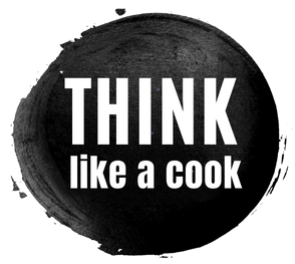Olive oil myths busted

Why cooking with olive oil is better
I don't know about you, but I have always been the questioning type: I like to do my own research and make up my own mind.
And I love diving down myth-busting rabbit holes.
One of my favourites: olive oil!
Fat, and especially healthy fats, is a contentious issue when it comes to nutrition advice. But experts seem to agree around one fact: olive oil is one of the healthiest oils you can use in the kitchen every day. Yet, much controversy remains around whether it's OK to cook with olive oil.
.
Cooking with olive oil
As it turns out, olive oil is not just for drizzling: it is also a really healthy option when it comes to cooking too!
It's a myth that cooking with good quality olive oil is 'a waste of money' or even harmful:
Recent research (see study) has shown that olive oil is more stable when heated than other vegetable oils (that famous 'smoke point' is actually irrelevant to stability).
Extra virgin olive oil also has a far higher content of antioxidants which persist with cooking and even counteract any degradation by heat.
Nutrients from olive oil also permeate the food cooked in it: vegetables cooked in olive oil have been shown to have a higher content of nutrients and antioxidants than water-cooked veggies (see study).
I admit, I'm biased: I grew up in Greece, so I would not think of cooking with anything else than olive oil. But it's not just cultural bias: Olive oil has been the default cooking oil around the Mediterranean for thousands of years and Mediterranean people still cook with it every day - the Mediterranean diet is known to be one of the healthiest for a reason.
.
How to choose olive oil
Like everything else, the less processed your olive oil is, the better.
At the very minimum look for extra virgin and cold pressed: that means oil from the first pressing of the whole olives, using pressure only, no heat or chemicals, to extract the oil. Basically, olive juice.
Olive oil of single country origin will be fresher, as multi-country oils are bottled using the ‘left-overs’.
Oil from smaller producers will be fresher for the same reason: the journey from harvest to kitchen is much shorter!
Small producers often syndicate their harvest within a local cooperative which makes organic certification difficult: I would choose independently produced over organic. If buying from a supermarket is the only choice I would choose organic (because, again, this is likely to produced at a smaller scale than non-organic olive oil.)
Mass-produced olive oil is also devastating for bird populations living in the trees, again, choosing oil from small producers ensures that the olives have been harvested by hand and not using mechanized netting.
Last but not least, if you can find it, choose unfiltered olive oil. This may look cloudy, and will readily thicken in cold weather: this is a good sign not a defect!
.
Why olive oil is healthier
The bottom line: any type of olive oil is healthier than standard vegetable oils (despite decades of being told otherwise).
Why? Polyunsaturated fats are more prone to oxidation when heated because they contain multiple double (i.e unsaturated, reactive) bonds in their chemical structure. These double bonds make the molecules more unstable, and therefore more susceptible to oxidation (damage from heat, light, and oxygen) during production, transport and, yes, cooking.
Olive oil is mono-unsaturated, i.e. it only contains one double bond so is much less reactive, plus it is very rich in antioxidants, counteracting any oxidative damage.
Saturated fats (no double bonds i.e. no reactivity) are the most stable fats of all (e.g. coconut oil, butter, ghee).
---
For lots more myth busting facts about olive oil, this is a brilliant podcast with Dr Simon Poole and Dr Rupy Aujla from the Doctor's Kitchen.
.

 Katerina Pavlakis
Katerina Pavlakis 
